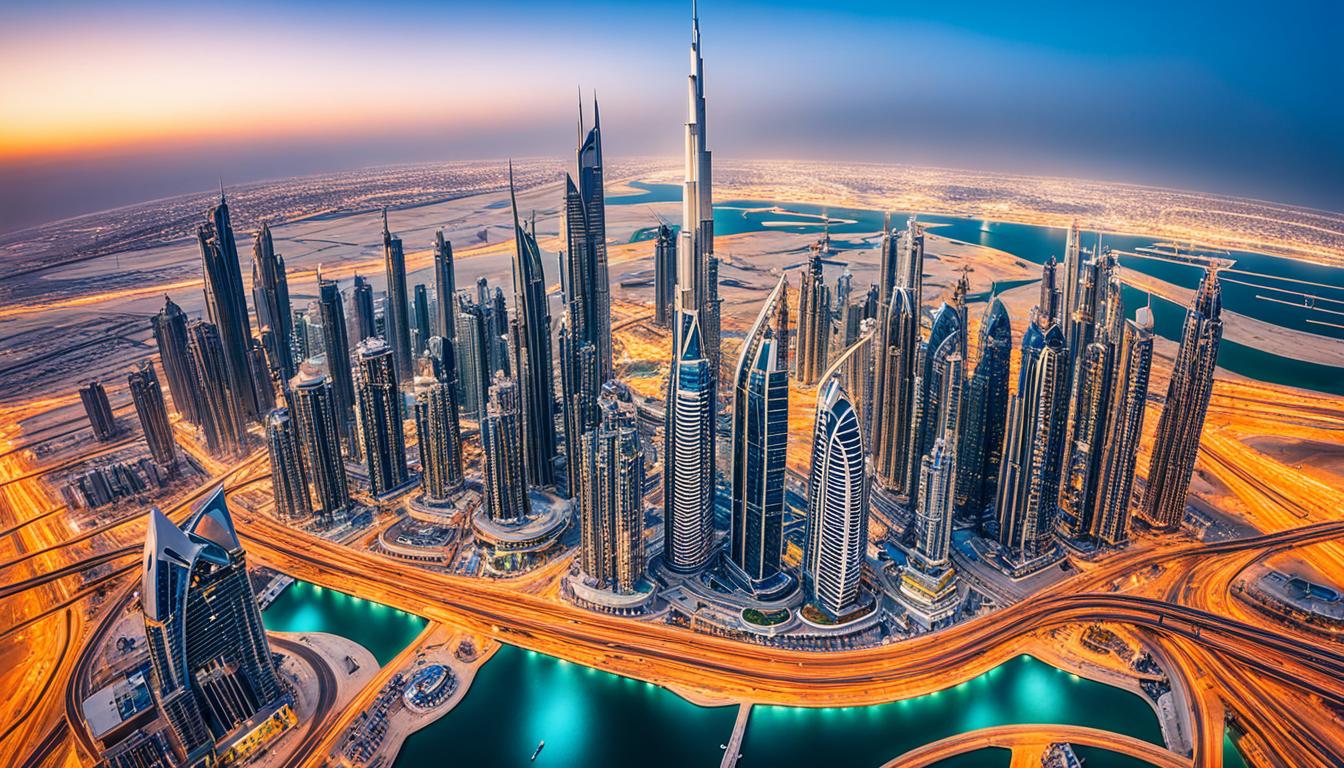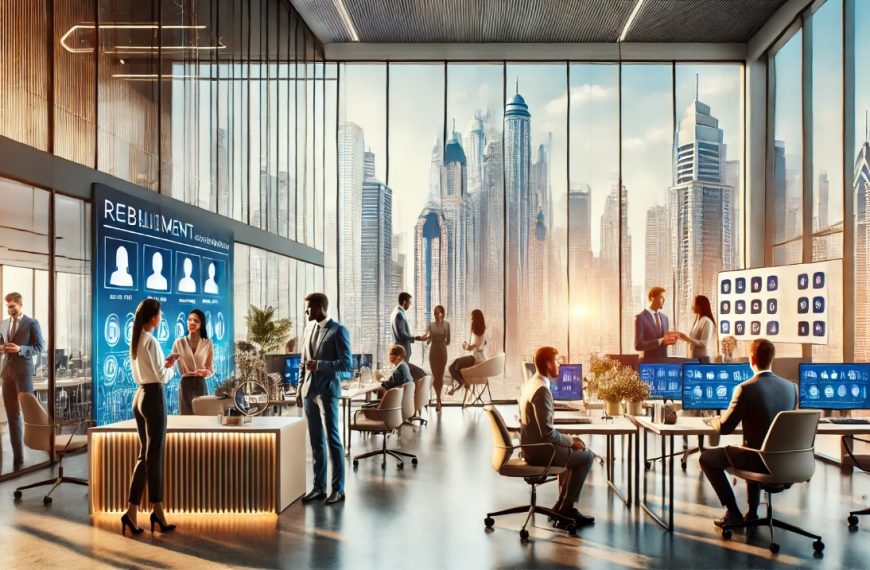Dubai, the vibrant city in the United Arab Emirates, is known for its rapid development and cosmopolitan atmosphere. As you navigate through the city, you may find yourself wondering about the population and its diverse demographics. In this article, we will explore the current population of Dubai, its demographics, as well as its population growth rate and projections.
What is the Population of Dubai – Demographics of Dubai
Dubai is a vibrant and diverse city known for its multicultural population. The demography of Dubai is characterized by a significant expatriate presence, making up approximately 85% of the total population. The city attracts individuals from all over the world, creating a truly cosmopolitan society.
Among the expatriate population, Asians constitute the majority, accounting for about 71% of Dubai’s residents. Indians are the largest group, comprising 51% of the expatriate population. Other prominent Asian nationalities include Pakistanis (17%), Bangladeshis (9%), and Filipinos (3%). The city also hosts a notable Somali community.
Emiratis, the native population of the United Arab Emirates, make up only 15% of Dubai’s population. The percentage of Emiratis has decreased in recent years due to the influx of expatriates seeking employment opportunities in Dubai’s thriving economy.
In terms of religion, Islam is the official religion of Dubai, and the majority of its residents practice Islam. However, the city also embraces cultural and religious diversity, with minority religions such as Christianity, Hinduism, Sikhism, and Buddhism being practiced by various communities.
“Dubai’s demography reflects its position as a global and open city, welcoming people from different backgrounds and cultures. This multicultural landscape contributes to the city’s dynamism and enriches its social fabric.” – Sheikh Mohammed bin Rashid Al Maktoum
The demographic composition of Dubai not only adds to its cultural tapestry but also influences various aspects of life, including cuisine, language, and traditions. This diversity is evident in the city’s vibrant neighborhoods, markets, and festivals, offering residents and visitors an enriching experience.
Frequently Asked Questions
- How many foreigners live in Dubai? Approximately 85% of Dubai’s population consists of foreigners.
- What percentage of Dubai is Emirati? Emiratis make up about 15% of Dubai’s population.
- Which nationality is more prominent in Dubai? Among the expatriate population, Indians are the largest group, accounting for 51%.
Dubai Demographics
| Nationality | Percentage |
|---|---|
| Indians | 51% |
| Pakistanis | 17% |
| Bangladeshis | 9% |
| Filipinos | 3% |
| Somalis | N/A |

The table above showcases the demographic distribution in Dubai with a focus on the prominent nationalities among expatriates. It is important to note that Dubai’s diversity extends well beyond these nationalities, creating a melting pot of cultures, languages, and traditions.
Population Density and City Size
The population density and city size of Dubai play a significant role in understanding the dynamics and growth of this vibrant city. Let’s explore the numbers and statistics that shed light on this aspect.
Dubai’s City Size
Dubai occupies an area of approximately 35 square kilometers within its city limits. However, the entire metropolis area extends much further, covering an expansive 4,114 square kilometers. This extensive land area encompasses various districts, neighborhoods, and suburbs that make up the greater Dubai region.
Population Density of Dubai
With such a vast metropolis, it is natural to anticipate a substantial population residing in Dubai. The population density of an area indicates how crowded or densely populated it is. In the case of Dubai, the population density in the metro area is approximately 762.6 individuals per square kilometer.
This figure highlights the city’s bustling nature and the significant number of residents who call Dubai their home. The high population density is an indicator of Dubai’s popularity and attractiveness, both as an economic hub and a preferred destination for expatriates from around the world.

The image above visually represents the population density of Dubai, showcasing the concentration of individuals within the city’s boundaries.
| City Size | Population Density |
|---|---|
| 35 square kilometers (city limits) | 762.6 individuals per square kilometer |
| 4,114 square kilometers (metropolis area) | – |
This table summarizes the city size and population density of Dubai, offering a quick reference to these key statistics.
Population Growth Rate and Projections
Dubai is experiencing remarkable population growth, establishing itself as one of the fastest-growing cities in the world. The city’s attractiveness for expatriates, coupled with its flourishing economy and abundant job opportunities, contribute to its rapid expansion. In fact, Dubai’s population growth rate stands at an impressive 10.7% annually.
By the year 2020, it is projected that the population of Dubai will exceed 2.8 million. Looking further ahead, by 2030, this number could reach an astonishing 3.4 million. These projections highlight the continuous and significant population growth Dubai is expected to experience in the coming years.
This rapid growth is a testament to Dubai’s allure and appeal as a global city, drawing individuals from all over the world who are seeking opportunities for personal and professional growth. As infrastructure and development continue to enhance the city’s livability, we can expect Dubai’s population to flourish further.
As the population continues to rise, Dubai is committed to ensuring sustainable development and maintaining its status as an international hub. Efforts are underway to provide proper infrastructure, amenities, and services to accommodate the growing population while preserving the city’s unique cultural identity.
“Dubai’s population growth showcases its unparalleled global appeal. As the city prospers and attracts individuals from around the world, its future remains bright and promising.”
Dubai’s Historical and Cultural Significance
Dubai, with its fascinating blend of history and modernity, holds a significant place in the United Arab Emirates. From its humble origins as a small fishing village in the 19th century, Dubai has emerged as a global city renowned for its rich heritage, diverse culture, and iconic attractions.

Ancient and Modern Attractions
Dubai’s attractions showcase a harmonious blend of ancient and modern architecture, catering to the diverse interests of its residents and visitors. One of the city’s notable landmarks is the Deira Clocktower, a historical monument that serves as a gateway to the vibrant Deira district. The clocktower symbolizes Dubai’s journey through time, connecting the past with the present.
Another iconic attraction is the Burj Al Arab hotel, a luxurious sail-shaped structure that stands as an architectural masterpiece and a testimony to Dubai’s opulence. The Burj Al Arab captures the city’s ambition to establish itself as a world-class destination, combining luxury, innovation, and Arabian hospitality.
The Hatta Heritage Village offers a glimpse into Dubai’s traditional way of life, preserving its cultural and historical roots. This charming village showcases traditional Emirati architecture, ancient fortresses, and local craftsmanship, providing visitors with an immersive cultural experience.
Cultural Diversity and Vibrant Nightlife
Dubai’s cultural diversity is a testament to its status as a melting pot of various nationalities and backgrounds. The city embraces people from all walks of life, creating a unique blend of customs, traditions, and cuisines. Visitors can indulge in a culinary journey, savoring authentic Emirati dishes or exploring global flavors at the multitude of international restaurants in Dubai.
When the sun sets, Dubai comes alive with its vibrant nightlife scene. From rooftop bars offering breathtaking views to world-class clubs hosting renowned DJs, the city offers an array of entertainment options for night owls. It’s a testament to Dubai’s global appeal and its ability to cater to diverse interests.
Luxury Shopping Experiences
Dubai is synonymous with luxury shopping, boasting a myriad of world-class malls and souks. Shoppers can explore modern retail centers such as The Dubai Mall, home to high-end fashion brands, luxury boutiques, and a vast array of entertainment options. The Mall of the Emirates is another shopper’s paradise, featuring designer stores, a renowned indoor ski resort, and an entertainment complex.
The traditional souks, such as the Deira Gold Souk and the Spice Souk, offer a more authentic and culturally immersive shopping experience. Visitors can browse through a treasure trove of gold jewelry, fragrant spices, and traditional Arabian artifacts.
Overall, Dubai’s historical and cultural significance, coupled with its remarkable attractions, make it a captivating destination for tourists and a vibrant home for its residents. The city’s evolution from a fishing village to a global metropolis exemplifies its progressive spirit, while its commitment to preserving its heritage ensures a harmonious blend of tradition and modernity.
Conclusion
Dubai’s population has experienced remarkable growth over the years, surging from a modest 20,000 in 1950 to surpass 3 million in recent times. This exponential population increase can primarily be attributed to the city’s thriving economy and wide-ranging opportunities, which have attracted a diverse community of expatriates. While Emiratis constitute a smaller percentage of the population, their presence adds to the cultural tapestry of Dubai.
As Dubai continues to expand and develop, it is poised to attract even more residents in the future. The city’s appeal as a global economic hub and its commitment to innovation ensure a steady influx of individuals seeking opportunities for personal and professional growth.
With its rapid population growth and ongoing development, Dubai stands as a vibrant, cosmopolitan city that celebrates its rich history while embracing a bright future. As the city continues to evolve and shape its identity, the population is projected to grow steadily, further solidifying Dubai’s position as a dynamic and globally influential metropolis.
FAQ
What is the population of Dubai?
According to the latest estimates, the population of Dubai is currently estimated at 3,051,016 as of 2024.
What is the demographic composition of Dubai?
The population of Dubai is primarily composed of expatriates, who make up approximately 85% of the total population. Emiratis make up only 15% of the population.
How many foreigners live in Dubai?
Approximately 85% of Dubai’s population consists of expatriates.
What percentage of Dubai’s population is Emirati?
Emiratis make up only 15% of Dubai’s population.
Which nationality is more prevalent in Dubai?
Among the expatriate population, the majority, about 71%, are of Asian descent, with Indians comprising the largest group at 51%.
What is the population density of Dubai?
The population density in the metro area of Dubai is around 762.6 individuals per square kilometer, indicating that it is a densely populated city.









